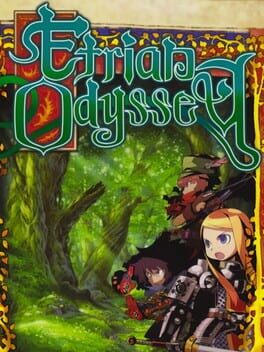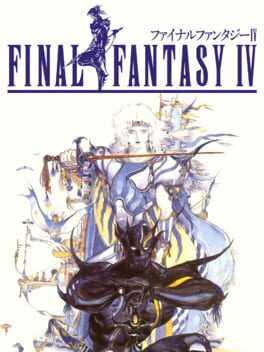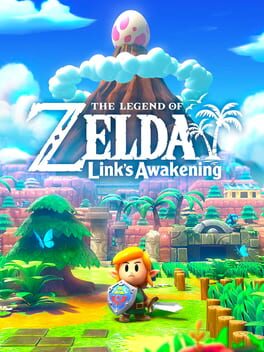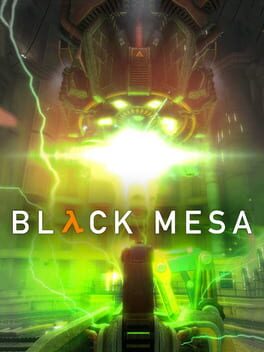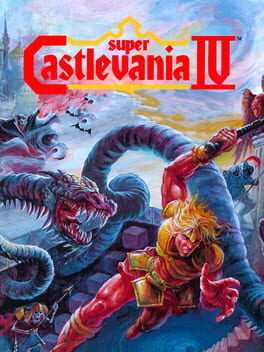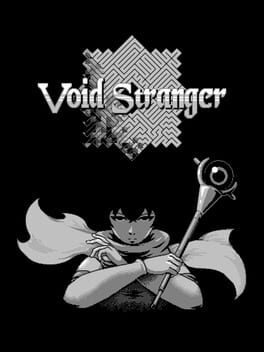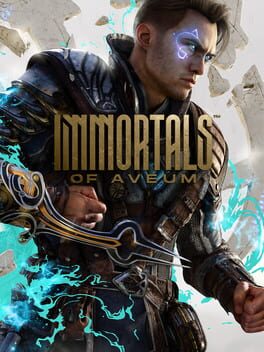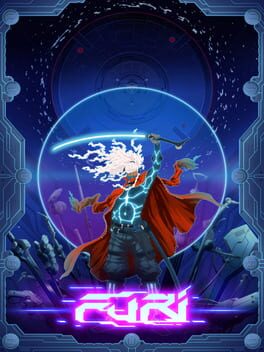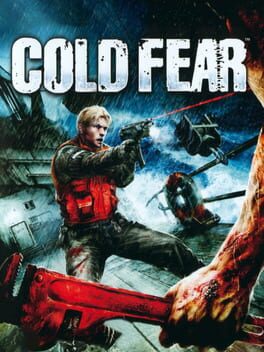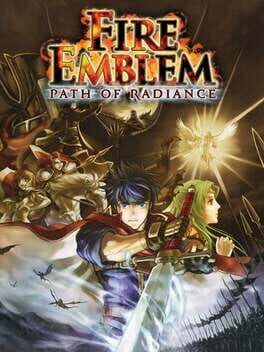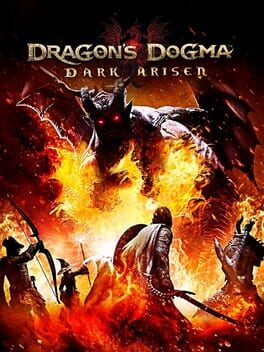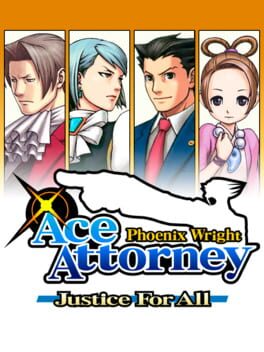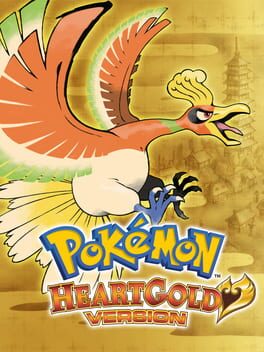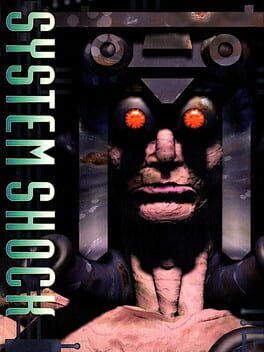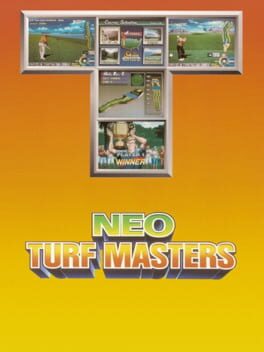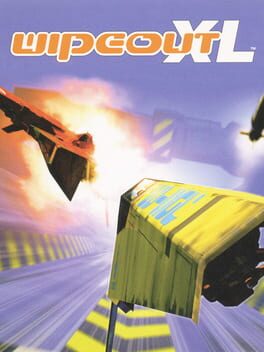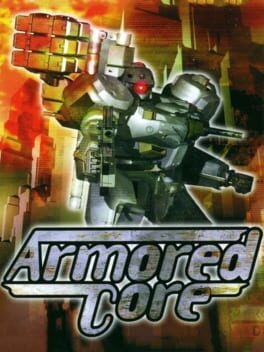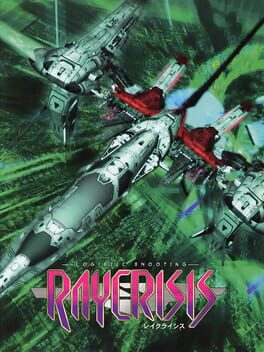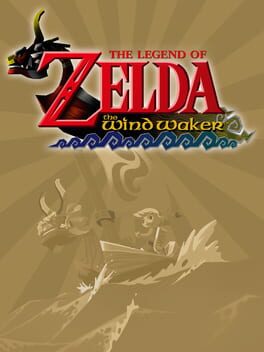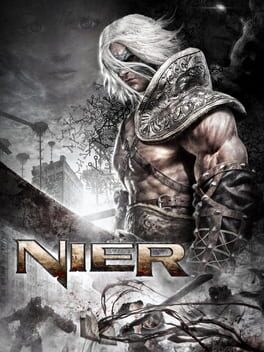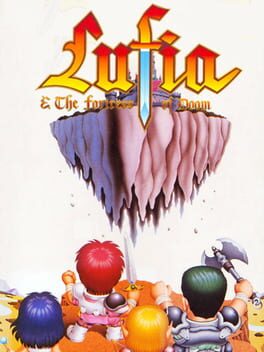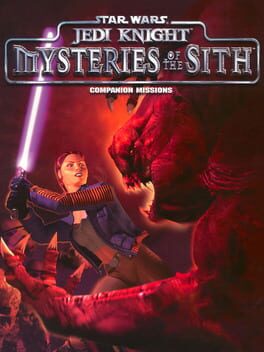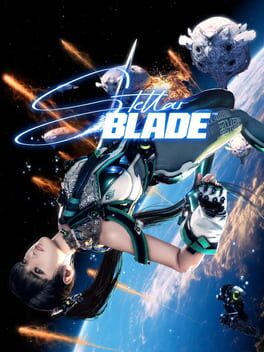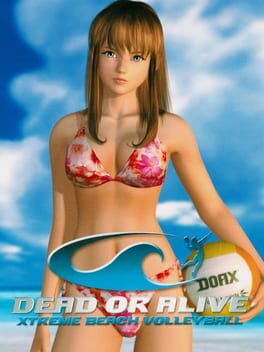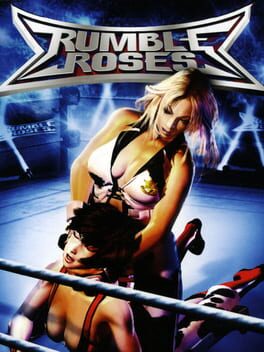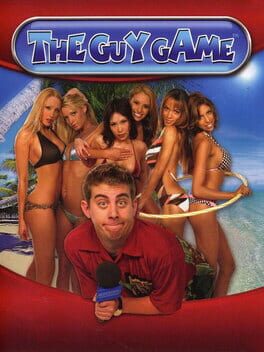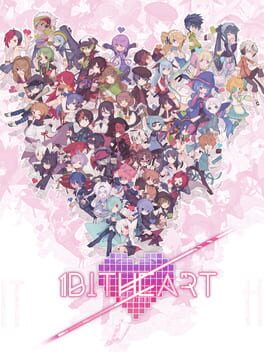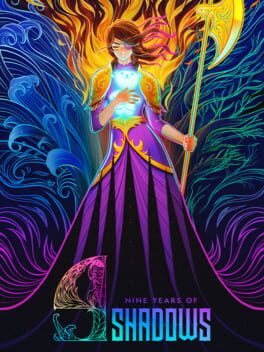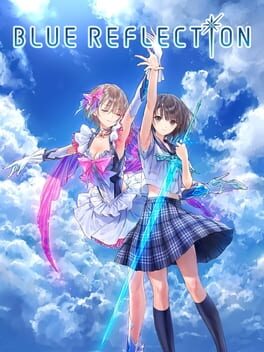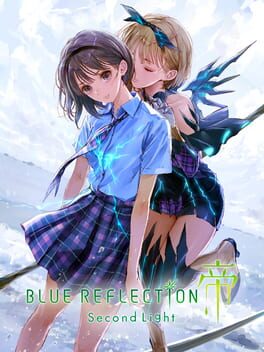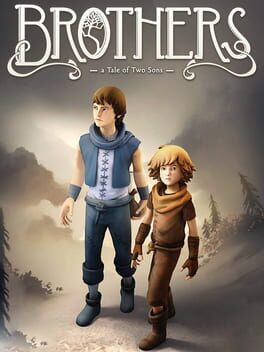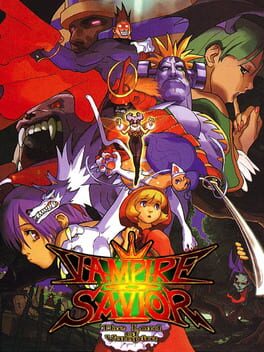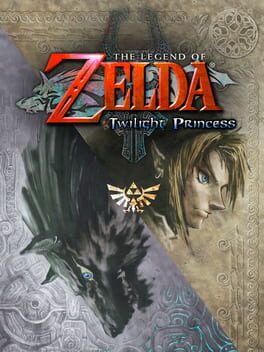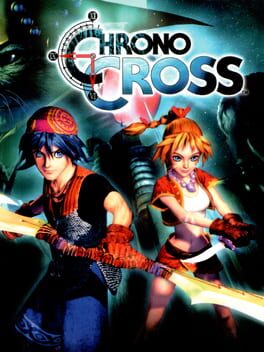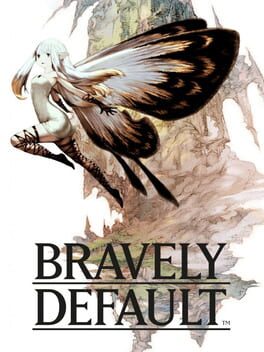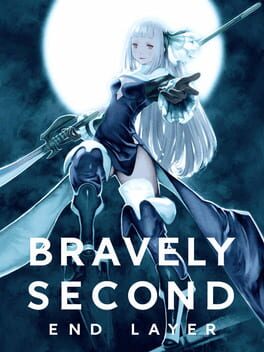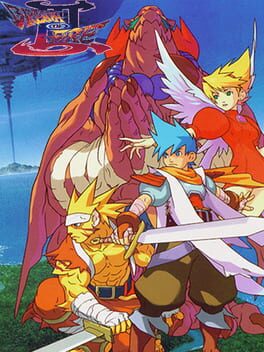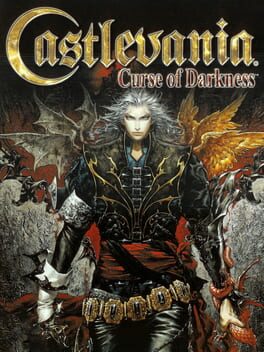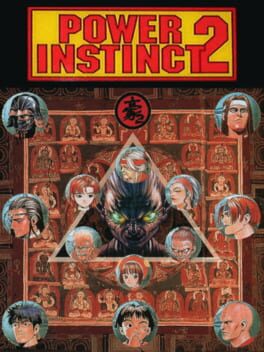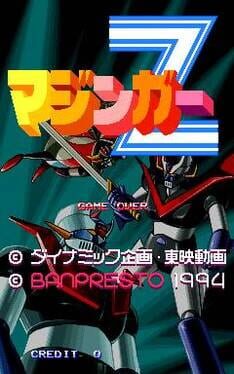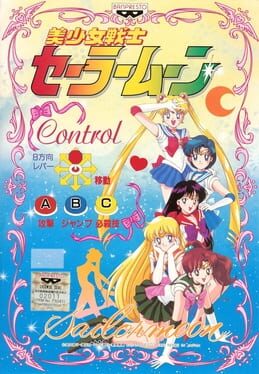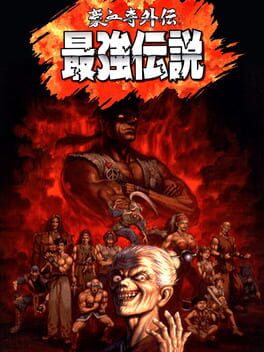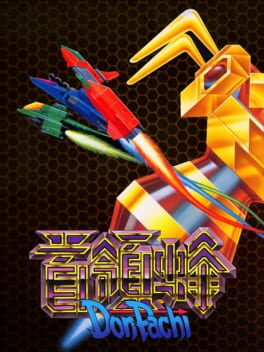curse
960 reviews liked by curse
Etrian Odyssey
2007
Fallout
1997
Hm....
Personally, I think games should be more obtuse.
I mean this genuinely.
I didn't press F1 until hour 10 and realize that I can use skills on things. This was awesome.
That item on the ground? Personally I don't want it to be distinguishable from the background to any degree.
A timer marking my imminent loss causing anxiety anytime I waste time? This is awesome. Your daughter is kidnapped? Sorry bro - I got shit to do.
Peak obtuseness was me realizing that reading a book and failing a repair passed like 12 hours of time. At this point the radx I took started to wear off (the radiation system is also obtuse and awesome), and my character casually remarks that their hair is falling out and their body is hemorrhaging.
I go back to a certain area after a certain amount of time passes... OOPS! Gorsh, golly!
>I beat the game but I took a little bit too long
A GA A HORSH
You specced 1 intelligence and 1 agility ? ? That's real.
Half the settlements don't know a single thing about each other, aside from traders. This weird separation combines with how desolate the wasteland actually is, is super good.
My favorite example of this is every settlement acting like you're an insane child for believing in Deathclaws. Meanwhile, in a certain settlement, the citizens are like "Deathclaws? points they're over there. We can't go over there any more because of thems. We hired guards to stop them from MAIMING us"
Ok final thought - the Mutant threat? Awesome. Mutants one hit killing me? Awesome. A mutant escorting me to an end game location, only to either have me instant game over or beat me within an inch of my life, lock me up, and take all my items? These things are awesome. Didn't save recently? you're an imbecile.
teleports into Todd Howards home
Can I get more of this?
The gunplay in fallout 4 was awesome ........ BUT STOP!!! KNOCK IT OFF. no more speaking protgagnoinst.. Givem e .. world record for dialogue in gaming! spits at mr Howie NO MORE 4 CHOICES THAT ARE THE SAME?!? HAD TO MOD THAT OUT BRO!!!! Borderlandas looting ???? BLEEDING EFFECT ON MY GUN ; RNG DEATHCLAW ALPHA NUMERICAL DEAATHCLAW MOTHER +6,000XP holding bleeding sledgehammer and raider left arm? NO! Starfield ELDERS SCORL??? QUIT IT NO gets strappedi nto the sl;op feeding machine
NO * * NO
Personally, I think games should be more obtuse.
I mean this genuinely.
I didn't press F1 until hour 10 and realize that I can use skills on things. This was awesome.
That item on the ground? Personally I don't want it to be distinguishable from the background to any degree.
A timer marking my imminent loss causing anxiety anytime I waste time? This is awesome. Your daughter is kidnapped? Sorry bro - I got shit to do.
Peak obtuseness was me realizing that reading a book and failing a repair passed like 12 hours of time. At this point the radx I took started to wear off (the radiation system is also obtuse and awesome), and my character casually remarks that their hair is falling out and their body is hemorrhaging.
I go back to a certain area after a certain amount of time passes... OOPS! Gorsh, golly!
>I beat the game but I took a little bit too long
A GA A HORSH
You specced 1 intelligence and 1 agility ? ? That's real.
Half the settlements don't know a single thing about each other, aside from traders. This weird separation combines with how desolate the wasteland actually is, is super good.
My favorite example of this is every settlement acting like you're an insane child for believing in Deathclaws. Meanwhile, in a certain settlement, the citizens are like "Deathclaws? points they're over there. We can't go over there any more because of thems. We hired guards to stop them from MAIMING us"
Ok final thought - the Mutant threat? Awesome. Mutants one hit killing me? Awesome. A mutant escorting me to an end game location, only to either have me instant game over or beat me within an inch of my life, lock me up, and take all my items? These things are awesome. Didn't save recently? you're an imbecile.
teleports into Todd Howards home
Can I get more of this?
The gunplay in fallout 4 was awesome ........ BUT STOP!!! KNOCK IT OFF. no more speaking protgagnoinst.. Givem e .. world record for dialogue in gaming! spits at mr Howie NO MORE 4 CHOICES THAT ARE THE SAME?!? HAD TO MOD THAT OUT BRO!!!! Borderlandas looting ???? BLEEDING EFFECT ON MY GUN ; RNG DEATHCLAW ALPHA NUMERICAL DEAATHCLAW MOTHER +6,000XP holding bleeding sledgehammer and raider left arm? NO! Starfield ELDERS SCORL??? QUIT IT NO gets strappedi nto the sl;op feeding machine
NO * * NO
Final Fantasy IV
1997
After sinking more than a hundred hours into Rebirth, I know the last thing I should do is try to bite off more Final Fantasy. I've already had too much, I'm bloated on chocobos and moogles and nearly ready to burst, and yet I've been eyeballing Final Fantasy IV and thinking "I can handle it." Comparatively speaking, 23 hours of gameplay is light, downright brisk. Rebirth's after dinner mint... Why shouldn't I indulge?
Well, back-to-back negative reviews from mutuals - both of which abandoned the game - should be reason enough for me to pass, at least for the time being.
It's so over.
Or is it? I'm Weatherby, when have I ever listened to anyone about how bad a game might be? Especially for a game I already paid my money for. The cellophane on this unopened Final Fantasy Chronicles is coming off, baby!
We're so back!
It's probably worth pointing out up front that by going with the Chronicles version of the game, I am effectively playing the real Final Fantasy IV, which originally released stateside on the SNES as a port of Japan's easy mode. For babies. I'm not a baby, how hard can this version of the game be?
Turns out very, at least in fits and bursts. Final Fantasy IV is a very inconsistent game in a lot of ways, and I think a lot of this inconsistency is born from the unique space it occupies in the overarching trajectory of the franchise. The SNES allowed Square to do so much more than what they previously accomplished with the NES trilogy, especially in regard to story, but a lot of FFIV's mechanical features feel as though the game has one foot firmly rooted a generation behind. Things like a highly restrictive inventory is just unnecessary thanks to the SNES' expanded memory space, and the encounter rate is just as bonkers as it was on the NES, sometimes sending you from one daunting battle to the next with only a mere tile separating them.
Guest characters, something Final Fantasy II leaned on with its rotating fourth party slot, are commonplace in the early half of FFIV, and a some of them feel more like a hindrance, resulting in a lot of stretches where you need to nanny idiots like Edward, who has no useful abilities, low health, and straight up runs off screen when you try to heal him up. Likewise, you'll occasionally be gifted with guest characters that are too good, creating this pendulum swing of the game being "too annoying" and "too easy."
This combination of antiquated design elements and inconsistent party composition makes the early game a drag, and it's no wonder I ditched the GBA version around Mt. Ordeals back when I originally played it in 2005.
It's so over.
Final Fantasy IV's story also struggles in the early half of the game and spends a bit too long meandering around. It is interesting to play this right off the heels of Final Fantasy III as both games feature numerous character sacrifices, though the greater scope of FFIV means you'll get to spend more time with them rather than coming upon each character briefly before they like, chuck themselves into a furnace or whatever. Each death feels meaningful, which is why it's a bit upsetting that FFIV walks back most of them, sheepishly shrugging and going "I don't know, they lived I guess."
Thankfully, both the story and gameplay eventually find their focus, and once FFIV dials things in, I found that I was starting to have a really good time with the game. Turns out a stable party of well-rounded characters who share a clear and common goal is just what you need to get me invested, even if it may not address every single problem I had with the game up to that point.
By the time the party awakens the Lunar Whale and takes a trip up to the god damned moon, I was fully in it, and I loved the way the game handles the reveal of its true antagonist, Zeromus, who is less a singular consciousness driven by focused malice and more representative of the game's greater themes concerning good and evil, its presence in all men, and the cyclical nature of war and peace. I am a noted Necron defender, so the idea that the party has to do battle with something more representative of a thought or manifestation of man's own nature is my kind of thing.
Also, he's got a sick battle theme.
We're so back
Unfortunately, actually fighting Zeromus is another matter entirely. I thought the Cloud of Darkness was a motherfucker, but this might be the most I've struggled with a final boss in any Final Fantasy game. Apparently this guy can cast Meteo, Holy, Bio, AND Flare, but you'd never know it because he spends 90% of the fight spamming Big Bang over and over again. The solution here is to let Rydia stay dead as all of her spells will result in an immediate counterattack that operates separately from the fixed timer that dictates Big Bang. This also buys you better healing as Rosa only has to split Curaja between four characters instead of five. At the 11th hour, Final Fantasy IV deigned it necessary to saddle me with more dead weight, and the constant run back through several floors with high encounter rates and ~ten minutes of mashing through mandatory dialog is a steep price for failure, which unfortunately sucked a lot of the wind out from Final Fantasy IV's ending.
it's so over. literally, i am done playing this video game
Rating games in a series can be a little tricky, but I think I've more or less settled on a curve when it comes to Final Fantasy. I gave the original game a 3.5/5, which seems a bit high when you consider how approachable, engaging, and bombastic later titles are. All qualities I would assign to FFIV even if I think it spends a little too much time playing around in the protoplasmic puddle left behind by the previous three entries. That's why it's simultaneously the easiest of these four for me to sit down with, yet it's also a 3/5.
Maybe one day I'll check out the SNES version. I am genuinely curious if the easier difficulty curve results in a more evenly paced game, or if it simply makes combat dull and predictable.
Anyway, the next game has a protagonist name Butz. We're so back.
Well, back-to-back negative reviews from mutuals - both of which abandoned the game - should be reason enough for me to pass, at least for the time being.
It's so over.
Or is it? I'm Weatherby, when have I ever listened to anyone about how bad a game might be? Especially for a game I already paid my money for. The cellophane on this unopened Final Fantasy Chronicles is coming off, baby!
We're so back!
It's probably worth pointing out up front that by going with the Chronicles version of the game, I am effectively playing the real Final Fantasy IV, which originally released stateside on the SNES as a port of Japan's easy mode. For babies. I'm not a baby, how hard can this version of the game be?
Turns out very, at least in fits and bursts. Final Fantasy IV is a very inconsistent game in a lot of ways, and I think a lot of this inconsistency is born from the unique space it occupies in the overarching trajectory of the franchise. The SNES allowed Square to do so much more than what they previously accomplished with the NES trilogy, especially in regard to story, but a lot of FFIV's mechanical features feel as though the game has one foot firmly rooted a generation behind. Things like a highly restrictive inventory is just unnecessary thanks to the SNES' expanded memory space, and the encounter rate is just as bonkers as it was on the NES, sometimes sending you from one daunting battle to the next with only a mere tile separating them.
Guest characters, something Final Fantasy II leaned on with its rotating fourth party slot, are commonplace in the early half of FFIV, and a some of them feel more like a hindrance, resulting in a lot of stretches where you need to nanny idiots like Edward, who has no useful abilities, low health, and straight up runs off screen when you try to heal him up. Likewise, you'll occasionally be gifted with guest characters that are too good, creating this pendulum swing of the game being "too annoying" and "too easy."
This combination of antiquated design elements and inconsistent party composition makes the early game a drag, and it's no wonder I ditched the GBA version around Mt. Ordeals back when I originally played it in 2005.
It's so over.
Final Fantasy IV's story also struggles in the early half of the game and spends a bit too long meandering around. It is interesting to play this right off the heels of Final Fantasy III as both games feature numerous character sacrifices, though the greater scope of FFIV means you'll get to spend more time with them rather than coming upon each character briefly before they like, chuck themselves into a furnace or whatever. Each death feels meaningful, which is why it's a bit upsetting that FFIV walks back most of them, sheepishly shrugging and going "I don't know, they lived I guess."
Thankfully, both the story and gameplay eventually find their focus, and once FFIV dials things in, I found that I was starting to have a really good time with the game. Turns out a stable party of well-rounded characters who share a clear and common goal is just what you need to get me invested, even if it may not address every single problem I had with the game up to that point.
By the time the party awakens the Lunar Whale and takes a trip up to the god damned moon, I was fully in it, and I loved the way the game handles the reveal of its true antagonist, Zeromus, who is less a singular consciousness driven by focused malice and more representative of the game's greater themes concerning good and evil, its presence in all men, and the cyclical nature of war and peace. I am a noted Necron defender, so the idea that the party has to do battle with something more representative of a thought or manifestation of man's own nature is my kind of thing.
Also, he's got a sick battle theme.
We're so back
Unfortunately, actually fighting Zeromus is another matter entirely. I thought the Cloud of Darkness was a motherfucker, but this might be the most I've struggled with a final boss in any Final Fantasy game. Apparently this guy can cast Meteo, Holy, Bio, AND Flare, but you'd never know it because he spends 90% of the fight spamming Big Bang over and over again. The solution here is to let Rydia stay dead as all of her spells will result in an immediate counterattack that operates separately from the fixed timer that dictates Big Bang. This also buys you better healing as Rosa only has to split Curaja between four characters instead of five. At the 11th hour, Final Fantasy IV deigned it necessary to saddle me with more dead weight, and the constant run back through several floors with high encounter rates and ~ten minutes of mashing through mandatory dialog is a steep price for failure, which unfortunately sucked a lot of the wind out from Final Fantasy IV's ending.
it's so over. literally, i am done playing this video game
Rating games in a series can be a little tricky, but I think I've more or less settled on a curve when it comes to Final Fantasy. I gave the original game a 3.5/5, which seems a bit high when you consider how approachable, engaging, and bombastic later titles are. All qualities I would assign to FFIV even if I think it spends a little too much time playing around in the protoplasmic puddle left behind by the previous three entries. That's why it's simultaneously the easiest of these four for me to sit down with, yet it's also a 3/5.
Maybe one day I'll check out the SNES version. I am genuinely curious if the easier difficulty curve results in a more evenly paced game, or if it simply makes combat dull and predictable.
Anyway, the next game has a protagonist name Butz. We're so back.
Maybe one day, you’ll remember this place…
A Link to the Past starts on a stormy night...
I actually never have beaten any 2D Zelda games until now, for reasons that are a story for another time, but I have played an tried quiet a ton of them, some until the half-way point or even a bit after that, and the one thing they all share in common is how well they sell this larger than life epic, an adventure with its silly moments, but that it still feels consistently ‘’grand’’, and the menace of evil looming over the heads of everyone in Hyrule. This isn’t a complain, not in the slightest, and that isn’t the reasons I didn’t see any of those games to the finale, is just a part of their identity, like the dungeons, vast worlds opened by upgrades, and Octorocks…
Link’s Awakening begins on the quiet coast…
…But Koholint Island felt different. It still has the many dungeons with their bosses —some being not that great to be honest, at best they end too soon and at worst they are slow or overly simple—, it still has the usual items and upgrades, it has a TON of Octorocks ; in many ways, it still has the mark of 2D Zelda…only instead of feeling like an epic , at times it feels closer to a fairy tale.
Mist forest filled with secret passages and tricker raccoons, songs of fishes and frogs that give new life to what has been gone for a really long time, and what’s perhaps one of the funniest side quests in any game that’s essentially just an item-trade hunt, but it goes on and on across the entire island and your final reward is basically getting two items and scammed, it’s amazing!
There’s a joy to be found in the island, be it the in the little chats with the weird folk or the great search for the color dungeon; even when you aren’t at one of the incredible dungeons, which from a design perspective are the most fun I’ve had with 2D Zelda ever, I never felt like I was losing time or getting side-tracked. The little things like walking a Chomp-Chomp around and playing a crane machine feel just as important as getting the fabled legendary instruments, so mundane but at the same time so mysterious, so fun, so dream-like.
The diorama comparison was also completely on purpose, the toy-like feeling the remake offers is nothing short of amazing, everything feels made out of plastic and clay in such a purposeful way I got nothing but praise for it, and playing through this world reminded me of the tales I made while playing with my tales, distant memories flourishing amidst a world full of wonder and shells.
It sucks that it comes to a price; the game’s frames tank… a LOT, sometimes in the dungeons, but mostly out in the open, and it’s pretty noticeable. I understand that running a completely ‘’open’’ island with such wonderful visuals would have its consequences on performance but I would lie if I said it sometimes felt a lit too much, and I’m left wondering if maybe a bit more time in the oven or a patch or two would have helped things, ‘cause as it is it can feel jarring and take you out of the dream.
It's honestly a bit of a weird remake at times; the fact the jump item isn’t immediately binded to a button permanently boggles my mind considering just how essential jumping is for the whole adventure, especially the scroll sections; that plus how cryptic some enemies’ weaknesses can be compared to others which are pretty much clear as day and not being able to use the D-Pad in any way despite Link snapping into the eight set directions , I’m left wondering, more-so than after playing any other remake, how the original holds-up and if maybe it can feel more consistent. Don’t get me wrong, I’m still in love with the visuals, and things like the Telephone Hint Huts and are a godsend for people like me, but I feel like I’ve missed something by not playing the original… or maybe I’m just searching excuses to return to the island.
You have no idea the mental strength I’m putting in to not talk about every single interaction and moment, ‘cause Link’s Awakening feels special, like a dream, yes, but also like a pas memory, memories of spending summers at the beach and waling along hills, memories of thinking of adventure and meeting strange yet lovable folks, scattered memories from a distant past or even a completely different Goomba-infested reality, memories of songs so far away they are beginning to echo…
I feel like I’ve been missing something incredible by not playing this sooner, yet I’m happy to have finally clicked with one of Link’s adventures, and especially this one. It’s fun, it’s carefree, it’s exciting… and beautiful in its own particular, amazing way, to be honest…
…and then, it’ll become real.
A Link to the Past starts on a stormy night...
I actually never have beaten any 2D Zelda games until now, for reasons that are a story for another time, but I have played an tried quiet a ton of them, some until the half-way point or even a bit after that, and the one thing they all share in common is how well they sell this larger than life epic, an adventure with its silly moments, but that it still feels consistently ‘’grand’’, and the menace of evil looming over the heads of everyone in Hyrule. This isn’t a complain, not in the slightest, and that isn’t the reasons I didn’t see any of those games to the finale, is just a part of their identity, like the dungeons, vast worlds opened by upgrades, and Octorocks…
Link’s Awakening begins on the quiet coast…
…But Koholint Island felt different. It still has the many dungeons with their bosses —some being not that great to be honest, at best they end too soon and at worst they are slow or overly simple—, it still has the usual items and upgrades, it has a TON of Octorocks ; in many ways, it still has the mark of 2D Zelda…only instead of feeling like an epic , at times it feels closer to a fairy tale.
Mist forest filled with secret passages and tricker raccoons, songs of fishes and frogs that give new life to what has been gone for a really long time, and what’s perhaps one of the funniest side quests in any game that’s essentially just an item-trade hunt, but it goes on and on across the entire island and your final reward is basically getting two items and scammed, it’s amazing!
There’s a joy to be found in the island, be it the in the little chats with the weird folk or the great search for the color dungeon; even when you aren’t at one of the incredible dungeons, which from a design perspective are the most fun I’ve had with 2D Zelda ever, I never felt like I was losing time or getting side-tracked. The little things like walking a Chomp-Chomp around and playing a crane machine feel just as important as getting the fabled legendary instruments, so mundane but at the same time so mysterious, so fun, so dream-like.
The diorama comparison was also completely on purpose, the toy-like feeling the remake offers is nothing short of amazing, everything feels made out of plastic and clay in such a purposeful way I got nothing but praise for it, and playing through this world reminded me of the tales I made while playing with my tales, distant memories flourishing amidst a world full of wonder and shells.
It sucks that it comes to a price; the game’s frames tank… a LOT, sometimes in the dungeons, but mostly out in the open, and it’s pretty noticeable. I understand that running a completely ‘’open’’ island with such wonderful visuals would have its consequences on performance but I would lie if I said it sometimes felt a lit too much, and I’m left wondering if maybe a bit more time in the oven or a patch or two would have helped things, ‘cause as it is it can feel jarring and take you out of the dream.
It's honestly a bit of a weird remake at times; the fact the jump item isn’t immediately binded to a button permanently boggles my mind considering just how essential jumping is for the whole adventure, especially the scroll sections; that plus how cryptic some enemies’ weaknesses can be compared to others which are pretty much clear as day and not being able to use the D-Pad in any way despite Link snapping into the eight set directions , I’m left wondering, more-so than after playing any other remake, how the original holds-up and if maybe it can feel more consistent. Don’t get me wrong, I’m still in love with the visuals, and things like the Telephone Hint Huts and are a godsend for people like me, but I feel like I’ve missed something by not playing the original… or maybe I’m just searching excuses to return to the island.
You have no idea the mental strength I’m putting in to not talk about every single interaction and moment, ‘cause Link’s Awakening feels special, like a dream, yes, but also like a pas memory, memories of spending summers at the beach and waling along hills, memories of thinking of adventure and meeting strange yet lovable folks, scattered memories from a distant past or even a completely different Goomba-infested reality, memories of songs so far away they are beginning to echo…
I feel like I’ve been missing something incredible by not playing this sooner, yet I’m happy to have finally clicked with one of Link’s adventures, and especially this one. It’s fun, it’s carefree, it’s exciting… and beautiful in its own particular, amazing way, to be honest…
…and then, it’ll become real.
Black Mesa
2015
they 'fixed' the MP5 and shotgun so instead of needing to rely on a whole arsenal of explosives, traps and weirdo guns you can just handle every single fight with two guns
they 'fixed' the HECU marines so instead of erratic freaks they just kinda stand around and impose a health tax if you look around a corner
they 'fixed' xen by making it look like it was trending on art station and replacing all the weird cool levels with Half-Life 2 puzzles for some godforsaken reason
they 'fixed' the HECU marines so instead of erratic freaks they just kinda stand around and impose a health tax if you look around a corner
they 'fixed' xen by making it look like it was trending on art station and replacing all the weird cool levels with Half-Life 2 puzzles for some godforsaken reason
Super Castlevania IV
1991
It's fine.
When folks decry Super for being a blasphemous take on the tried-and-true formula of Classicvania with it's eight-directional whipping, they're absolutely justified in their thought. It takes away the strategical element that made us love the thinking person's aspect behind the careful movement. An entire sub-system becomes a complete afterthought, with them only being convenient at hyper-specific instances rather than something that was there to truly compliment our whipping prowess to help with entire courses and encounters. Taking a death becomes less threatening as losing a sub-weapon essentially turns into a very minor slap on the wrist at worst, as an empty sub-weapon box may as well had been what it felt like the entire time we had been playing.
It's an ordeal that can't be simply ignored in a self-imposed challenge like the charged mega buster in every NES era Mega Man past the third game, and you're left with Simon being able to skillfully twirl his whip better than any other Belmont before or after him. Perhaps Simon was always meant to be presented as the most headstrong and bullish of the family? Characterization through mechanics? It remains to be seen if that was the intent, or if it was supposed to be an "evolution". An evolution that no doubt would've made this entry an even bigger target of contempt, especially if the stage design would continue to fail to compliment the new system beyond smattering a few bats flying down from odd angles, and if we could still easily thwart Axe Armors from below the floor they're standing on. Luckily for all of us however, this would be the only time such a new take would be used, and instead of being a deplorable turning point for the series, it is in fact unique and now it's own experience.
A retelling of the original that shows Simon's entire journey from beyond Devil's Castle, braving the horrors that crept from the onset of the horrid manifestation of Dracula's power within what was once a peaceful forest accompanied by strings of a violin within a purple and grey console. A walk through the caves with beautiful woodwind arrangements, and mesmerizing illusions brought upon by the seventh mode conjured by unknown forces presumably under the control of the dark lord himself. The approach to familiar scenery from the beginning of our original story of the legendary quest partnered by intimidating percussion for nightmares to come. We make our way through the retold portions of Simon's tale, and upon completion hear echoes of our past one last time before we must move on to beginnings of a new generation. The slow haunting keys of an organ cue the entry of Dracula to the main stage. Simon's Theme of which signaled the entrance of the hero at the very start, returns once again at the final moment the Count is nearing his defeat to build the audience's tension to the epic conclusion of the adventure. The orchestra plays to the agonizing death of the villain, and rings in daylight's victory over the darkness.
The fabled saga, retold and reimagined with added flare of chilling drama and suspense. Not to replace the original, but to remember it through a more cinematic lens. Forever immortal.
When folks decry Super for being a blasphemous take on the tried-and-true formula of Classicvania with it's eight-directional whipping, they're absolutely justified in their thought. It takes away the strategical element that made us love the thinking person's aspect behind the careful movement. An entire sub-system becomes a complete afterthought, with them only being convenient at hyper-specific instances rather than something that was there to truly compliment our whipping prowess to help with entire courses and encounters. Taking a death becomes less threatening as losing a sub-weapon essentially turns into a very minor slap on the wrist at worst, as an empty sub-weapon box may as well had been what it felt like the entire time we had been playing.
It's an ordeal that can't be simply ignored in a self-imposed challenge like the charged mega buster in every NES era Mega Man past the third game, and you're left with Simon being able to skillfully twirl his whip better than any other Belmont before or after him. Perhaps Simon was always meant to be presented as the most headstrong and bullish of the family? Characterization through mechanics? It remains to be seen if that was the intent, or if it was supposed to be an "evolution". An evolution that no doubt would've made this entry an even bigger target of contempt, especially if the stage design would continue to fail to compliment the new system beyond smattering a few bats flying down from odd angles, and if we could still easily thwart Axe Armors from below the floor they're standing on. Luckily for all of us however, this would be the only time such a new take would be used, and instead of being a deplorable turning point for the series, it is in fact unique and now it's own experience.
A retelling of the original that shows Simon's entire journey from beyond Devil's Castle, braving the horrors that crept from the onset of the horrid manifestation of Dracula's power within what was once a peaceful forest accompanied by strings of a violin within a purple and grey console. A walk through the caves with beautiful woodwind arrangements, and mesmerizing illusions brought upon by the seventh mode conjured by unknown forces presumably under the control of the dark lord himself. The approach to familiar scenery from the beginning of our original story of the legendary quest partnered by intimidating percussion for nightmares to come. We make our way through the retold portions of Simon's tale, and upon completion hear echoes of our past one last time before we must move on to beginnings of a new generation. The slow haunting keys of an organ cue the entry of Dracula to the main stage. Simon's Theme of which signaled the entrance of the hero at the very start, returns once again at the final moment the Count is nearing his defeat to build the audience's tension to the epic conclusion of the adventure. The orchestra plays to the agonizing death of the villain, and rings in daylight's victory over the darkness.
The fabled saga, retold and reimagined with added flare of chilling drama and suspense. Not to replace the original, but to remember it through a more cinematic lens. Forever immortal.
Void Stranger
2023
There are a lot of people who talk about this game with hushed lips. I can see how this is frustrating for people that want a fuller recommendation and for those who didn’t enjoy it as much as people like me. If I’m being honest, it's probably wiser to just act as another voice echoing the “this game is great, just go play it mentality,” because this game DESERVES to be played unspoiled. If you like games in general, and are even slightly interested in it, give it a go. Stop reading this, you owe it to yourself to play a game as good as Void Stranger blind.
However, this game really is special. I really, really want to talk about it more in depth, and this site is where I talk about games. I will keep it very light on spoilers. I have been that spiteful person that continues to read/watch/listen past the spoiler warning, and I’ve often regretted it, so I refuse to actually spoil this game in full.
So what is Void Stranger? For those uninitiated, it's a 2D sokoban puzzle game. Sokoban is a genre that stems from the 1982 title of the same name, where the goal was to push around boxes in a warehouse. What you need to understand from this description is that everything is on a grid, including the player. Think Minecraft in 2D, but you can only move in increments of 1 block. Some more notable games in the same vein are 2019’s ‘Baba is You,’ and 2016’s ‘Stephen’s Sausage Roll.’ Sokoban games focus on creating puzzles in these grid like environments, usually with a gimmick that restructures the already existing format of Sokoban. In Stephen’s Sausage Roll, it's the fork. In Baba is You, it's how objects are defined in the space of play. And in Void Stranger, it's moving around the environment with a wand. It's these limitations that help Sokoban games to focus on their puzzles, as opposed to other titles that are games WITH puzzles, not puzzle games. The simple structure of Sokoban games (which oftentimes don’t have much more than four directional input) that allows the designer to hand craft situations to test the players wits, without having to account for a myriad of variables.
As far as structure in puzzle games go, I find it hard for a game to juggle narrative and gameplay in a coherent way. The easiest way I can describe this is by looking at various puzzle games and seeing which they decide to focus on. Tetris is a arcade-y puzzle game with no story, yet elegantly designed gameplay. Baba is You is the same, where there is no overarching narrative connecting the puzzles. These games are able to achieve good puzzles by not worrying about telling a narrative at all and just focusing on mechanics. Then you have games like the Portal series where the gimmicks behind the puzzles are fun to interact with, but the puzzles are kinda shit. However, I think these games are great (in particular Portal 1) because they use the premise of solving puzzles to create an interesting story. It also helps the pacing of the story, since the player isn’t very likely to get stuck on a hard puzzle (the puzzles are really easy). This approach is easy to see in playtime as well. The Portal games can easily be beaten in one sitting (I did so with both on my first playthroughs), yet the harder puzzle games might require hours for a single puzzle.
Now to be clear, I don’t think it is a fault of any of the mentioned games. They focus on only one of the two aspects mentioned and I like both approaches. I mainly bring this up to highlight that Void Stranger is able to do both. It's not that Void Stranger has a good story with a good puzzle game slapped on, or vice versa, but that they aid each other to elevate the whole experience.
It's here where I would like to interject with another spoiler warning, but with a bit more explanation as to why you should go play, as opposed to just saying go play. If you like hard puzzle games, you will probably like Void Stranger. If you like games with good stories, and are willing to put up with difficult puzzles, you will probably like Void Stranger. But most important to the discussion of spoilers, if you like what I would call “Mechanical Learning” games (some people call these Metroid-Branias) such as Outer Wilds, TUNIC, or Her Story, you will probably like Void Stranger. If you’ve played any of those titles, then I think you can begin to understand why the community surrounding this game is so careful with its spoilers.
It's this last element of design that allows for the game to intertwin gameplay and narrative so elegantly. This is because of how these “Mechanical Learning” games work. They operate in the design space that we might call ‘Meta’ gaming. Where part of the game is designed to interact with the player to a certain extent. Puzzles for the sake of puzzles can be boring, and yet, a game with a really good story that is constantly interrupted by tons of gameplay might also be considered to have bad pacing. It’s through this interactive part of the game that players that are attracted to both types of puzzle games can become more easily invested. When done correctly, meta stuff is often among the best stories games have to offer, mostly because of how unique it is to the medium of video games. Likewise, by incorporating these story elements into the game (as opposed to more and more cutscenes, exposition dumps, and item descriptions that modern games love to use) you actually get the benefit of having your story be directly tied to gameplay.
Void Stranger is a game where your understanding of it will be reshaped over and over as you continue to progress through the game. When you start the game for the first time, following a settings screen, you’ll be presented the opportunity to draw your own brand. This, along with the “inscription” you can inspect in the first room of the game, seem very obtuse and archaic by design. If you’re like me, these are the kinds of details that will stick out in your mind as you progress, wondering what purpose they serve, and why the devs so intentionally stuck them at the very beginning. It's this sort of prodding at your imagination that Void Stranger excels at. It's a game that rewards your observation with progress on larger mysteries found in the void. If these details elude you however, it will become immediately apparent that not everything is what it seems down here upon your first death. For most this will happen early on, so I don’t feel it's too big a spoiler, but essentially the game directly asks you to make a choice regarding how to proceed. This choice does have significance, but realization of what that significance is won’t happen until much later.
It's the process of learning new ways to interact with your environment that I love in these games. Learning new tricks by testing hypotheses is such a cool way to reward player curiosity. There isn’t much more to say about the meta elements without fully discussing spoilers. For me at least, they were really fun to interact with, and I had many “Holy Shit”, jaw on the floor moments. At least 5, which might be the most any individual game has had me in that mindset. I LOVED Void Stranger during these moments. Trying to piece together progression on a larger scale than individual puzzle rooms was just plain fun. I cannot praise this aspect of the game enough.
If you’ll allow a hard segway, the puzzles can be really difficult. Especially the “post-credit” content I found to be really hard when I “fully engaged” with it. This is the one reason why I’m hesitant to recommend Void Stranger to everyone. I’m really grateful I did all the hardest puzzles, as there is a good pay off at the end of all the content, and I really felt a sense of accomplishment by overcoming it. I think there was only one puzzle that I found to be unfair in the entire game, and that was the only time I had to consult a guide. I would consider that a success. It's very hard to talk about a puzzle game’s puzzles without visual cues, and without giving away the ‘a-ha’ moments where you begin to understand how to interact with simple mechanics, so all I can say was that I enjoyed it thoroughly.
The story, although simple, I found to be really compelling. It gets better the more you put into it, so I would highly recommend trying to find all narrative content. There was one scene in particular that had me nearly well up, and I think it was well earned. The Mother-Daughter dynamic feels fully fleshed out, although I can’t really dive too far in without more spoilers. As someone who doesn’t always see eye-to-eye with their parents, I found myself re-evaluating my own relationships thanks to this game. I don’t think I can give much more praise to a story than saying that it has affected me outside of my playtime, so I will leave it there for my thoughts on the game.
Miscellaneous thoughts that didn’t fit into the script:
The sound track is phenomenal. Like seriously, not just good, great.
I love the atmosphere in the game. I think it's easiest to feel when you walk into a ‘tree room’, but I love how it adapts as you find more secrets. Coming to an understanding of where you actually are, and what that place is, is hinted at far before you reach an actual explanation which I found to be really cool.
I loved all the little moments with NPC’s. This game doesn’t have sprawling prose or flashy use of figurative language, but I thought that all the writing was fitting for all the characters. That’s really all you need to be successful, and I’m glad that it was so focused. Not everything can be a Disco Elysium or a Planescape: Torment, and to be honest, not everything should be.
If you read this, thank you. Play Void Stranger.
However, this game really is special. I really, really want to talk about it more in depth, and this site is where I talk about games. I will keep it very light on spoilers. I have been that spiteful person that continues to read/watch/listen past the spoiler warning, and I’ve often regretted it, so I refuse to actually spoil this game in full.
So what is Void Stranger? For those uninitiated, it's a 2D sokoban puzzle game. Sokoban is a genre that stems from the 1982 title of the same name, where the goal was to push around boxes in a warehouse. What you need to understand from this description is that everything is on a grid, including the player. Think Minecraft in 2D, but you can only move in increments of 1 block. Some more notable games in the same vein are 2019’s ‘Baba is You,’ and 2016’s ‘Stephen’s Sausage Roll.’ Sokoban games focus on creating puzzles in these grid like environments, usually with a gimmick that restructures the already existing format of Sokoban. In Stephen’s Sausage Roll, it's the fork. In Baba is You, it's how objects are defined in the space of play. And in Void Stranger, it's moving around the environment with a wand. It's these limitations that help Sokoban games to focus on their puzzles, as opposed to other titles that are games WITH puzzles, not puzzle games. The simple structure of Sokoban games (which oftentimes don’t have much more than four directional input) that allows the designer to hand craft situations to test the players wits, without having to account for a myriad of variables.
As far as structure in puzzle games go, I find it hard for a game to juggle narrative and gameplay in a coherent way. The easiest way I can describe this is by looking at various puzzle games and seeing which they decide to focus on. Tetris is a arcade-y puzzle game with no story, yet elegantly designed gameplay. Baba is You is the same, where there is no overarching narrative connecting the puzzles. These games are able to achieve good puzzles by not worrying about telling a narrative at all and just focusing on mechanics. Then you have games like the Portal series where the gimmicks behind the puzzles are fun to interact with, but the puzzles are kinda shit. However, I think these games are great (in particular Portal 1) because they use the premise of solving puzzles to create an interesting story. It also helps the pacing of the story, since the player isn’t very likely to get stuck on a hard puzzle (the puzzles are really easy). This approach is easy to see in playtime as well. The Portal games can easily be beaten in one sitting (I did so with both on my first playthroughs), yet the harder puzzle games might require hours for a single puzzle.
Now to be clear, I don’t think it is a fault of any of the mentioned games. They focus on only one of the two aspects mentioned and I like both approaches. I mainly bring this up to highlight that Void Stranger is able to do both. It's not that Void Stranger has a good story with a good puzzle game slapped on, or vice versa, but that they aid each other to elevate the whole experience.
It's here where I would like to interject with another spoiler warning, but with a bit more explanation as to why you should go play, as opposed to just saying go play. If you like hard puzzle games, you will probably like Void Stranger. If you like games with good stories, and are willing to put up with difficult puzzles, you will probably like Void Stranger. But most important to the discussion of spoilers, if you like what I would call “Mechanical Learning” games (some people call these Metroid-Branias) such as Outer Wilds, TUNIC, or Her Story, you will probably like Void Stranger. If you’ve played any of those titles, then I think you can begin to understand why the community surrounding this game is so careful with its spoilers.
It's this last element of design that allows for the game to intertwin gameplay and narrative so elegantly. This is because of how these “Mechanical Learning” games work. They operate in the design space that we might call ‘Meta’ gaming. Where part of the game is designed to interact with the player to a certain extent. Puzzles for the sake of puzzles can be boring, and yet, a game with a really good story that is constantly interrupted by tons of gameplay might also be considered to have bad pacing. It’s through this interactive part of the game that players that are attracted to both types of puzzle games can become more easily invested. When done correctly, meta stuff is often among the best stories games have to offer, mostly because of how unique it is to the medium of video games. Likewise, by incorporating these story elements into the game (as opposed to more and more cutscenes, exposition dumps, and item descriptions that modern games love to use) you actually get the benefit of having your story be directly tied to gameplay.
Void Stranger is a game where your understanding of it will be reshaped over and over as you continue to progress through the game. When you start the game for the first time, following a settings screen, you’ll be presented the opportunity to draw your own brand. This, along with the “inscription” you can inspect in the first room of the game, seem very obtuse and archaic by design. If you’re like me, these are the kinds of details that will stick out in your mind as you progress, wondering what purpose they serve, and why the devs so intentionally stuck them at the very beginning. It's this sort of prodding at your imagination that Void Stranger excels at. It's a game that rewards your observation with progress on larger mysteries found in the void. If these details elude you however, it will become immediately apparent that not everything is what it seems down here upon your first death. For most this will happen early on, so I don’t feel it's too big a spoiler, but essentially the game directly asks you to make a choice regarding how to proceed. This choice does have significance, but realization of what that significance is won’t happen until much later.
It's the process of learning new ways to interact with your environment that I love in these games. Learning new tricks by testing hypotheses is such a cool way to reward player curiosity. There isn’t much more to say about the meta elements without fully discussing spoilers. For me at least, they were really fun to interact with, and I had many “Holy Shit”, jaw on the floor moments. At least 5, which might be the most any individual game has had me in that mindset. I LOVED Void Stranger during these moments. Trying to piece together progression on a larger scale than individual puzzle rooms was just plain fun. I cannot praise this aspect of the game enough.
If you’ll allow a hard segway, the puzzles can be really difficult. Especially the “post-credit” content I found to be really hard when I “fully engaged” with it. This is the one reason why I’m hesitant to recommend Void Stranger to everyone. I’m really grateful I did all the hardest puzzles, as there is a good pay off at the end of all the content, and I really felt a sense of accomplishment by overcoming it. I think there was only one puzzle that I found to be unfair in the entire game, and that was the only time I had to consult a guide. I would consider that a success. It's very hard to talk about a puzzle game’s puzzles without visual cues, and without giving away the ‘a-ha’ moments where you begin to understand how to interact with simple mechanics, so all I can say was that I enjoyed it thoroughly.
The story, although simple, I found to be really compelling. It gets better the more you put into it, so I would highly recommend trying to find all narrative content. There was one scene in particular that had me nearly well up, and I think it was well earned. The Mother-Daughter dynamic feels fully fleshed out, although I can’t really dive too far in without more spoilers. As someone who doesn’t always see eye-to-eye with their parents, I found myself re-evaluating my own relationships thanks to this game. I don’t think I can give much more praise to a story than saying that it has affected me outside of my playtime, so I will leave it there for my thoughts on the game.
Miscellaneous thoughts that didn’t fit into the script:
The sound track is phenomenal. Like seriously, not just good, great.
I love the atmosphere in the game. I think it's easiest to feel when you walk into a ‘tree room’, but I love how it adapts as you find more secrets. Coming to an understanding of where you actually are, and what that place is, is hinted at far before you reach an actual explanation which I found to be really cool.
I loved all the little moments with NPC’s. This game doesn’t have sprawling prose or flashy use of figurative language, but I thought that all the writing was fitting for all the characters. That’s really all you need to be successful, and I’m glad that it was so focused. Not everything can be a Disco Elysium or a Planescape: Torment, and to be honest, not everything should be.
If you read this, thank you. Play Void Stranger.
Immortals of Aveum
2023
Furi
2016
Honestly about still as good as I remember?
I feel like there's more to appreciate coming back to it now in a,, endearing way. It's like a collective playable synthwave album, down to how the attacks are basically a rhythm, but just jumbled around by bursts of twin stick sections and walking moments where you let the music play while a stupid pastiche narrates at you. And all of that is still really really fun to me. I'm enjoying the push and pull like normal, even if it's all rudimentary now that I've already beaten Furier and still have the muscle memory.
Which really surprised me, because I think that's the kind of opaque bullshit I would come back and go "wow this meant genuinely nothing, what the fuck did they think they were cooking?", but with all the environments and how the music sways it comes off more in the stoner sense where they THOUGHT they were being so interesting and deep but their eyes are staring blank straight through you lol. That's like the best way I can explain why it's fun to experience on a return.
It congeals together in such a way that I find myself unable to resent its very standard and now blatantly generic "phase" design. It's like yeah, I can get into it ^.=.^ I'm still banging my head to You're Mine, after all. Hilariously it makes me feel like I'm too harsh on Sekiro that This is the rhythm like action game I'm eating up today.
I feel like there's more to appreciate coming back to it now in a,, endearing way. It's like a collective playable synthwave album, down to how the attacks are basically a rhythm, but just jumbled around by bursts of twin stick sections and walking moments where you let the music play while a stupid pastiche narrates at you. And all of that is still really really fun to me. I'm enjoying the push and pull like normal, even if it's all rudimentary now that I've already beaten Furier and still have the muscle memory.
Which really surprised me, because I think that's the kind of opaque bullshit I would come back and go "wow this meant genuinely nothing, what the fuck did they think they were cooking?", but with all the environments and how the music sways it comes off more in the stoner sense where they THOUGHT they were being so interesting and deep but their eyes are staring blank straight through you lol. That's like the best way I can explain why it's fun to experience on a return.
It congeals together in such a way that I find myself unable to resent its very standard and now blatantly generic "phase" design. It's like yeah, I can get into it ^.=.^ I'm still banging my head to You're Mine, after all. Hilariously it makes me feel like I'm too harsh on Sekiro that This is the rhythm like action game I'm eating up today.
Cold Fear
2005
Everybody compares this to Resident Evil 4 but there's a far better - and more fascinating, in terms of considering the dev process/timelines involved - comparison: Resident Evil 3.5, the original version of Resident Evil 4 that they scrapped before pivoting towards the what they eventually released as the classic everyone remembers in 2005. Even a cursory look at when the final RE4 and Cold Fear were announced/shown will tell you that any influence from the former on the latter, if indeed there was any at all, had to be minimal at most.
This game and RE3.5 on the other hand do have one, compellingly specific key thing in common. In the final RE4 the camera was always behind Leon's back, for both normal movement and aiming. This of course eschewed the series conventions of fixed camera angles. In RE3.5 they had the fixed camera angles (with some shifting) but would switch to the over the shoulder view as you aimed your gun. Cold Fear doesn't have strictly fixed camera angles at all times but it has a lot of them and implements this exact same camera dynamic in many cirucmstances. Watch this gameplay for a bit and then go back to the RE3.5 footage linked above.
They're really close! Whether this is the Cold Fear team seeing that early RE3.5 footage (the gameplay linked was first shown at E3 2003) and taking influence or just two companies converging on the same idea I've obviously no clue. Darkworks' previous game, Alone in the Dark: The New Nightmare, was already a fixed camera survival horror so it's a not a huge leap to make. Regardless, it's a curious little detail of gaming history that things played out this way. The ideas of one project that never saw fruition in their original context instead coming to the fore in a game from a different company, only for that game to be consigned to the bargain bin of history as a 'clone' of that original project's final outcome.
This game and RE3.5 on the other hand do have one, compellingly specific key thing in common. In the final RE4 the camera was always behind Leon's back, for both normal movement and aiming. This of course eschewed the series conventions of fixed camera angles. In RE3.5 they had the fixed camera angles (with some shifting) but would switch to the over the shoulder view as you aimed your gun. Cold Fear doesn't have strictly fixed camera angles at all times but it has a lot of them and implements this exact same camera dynamic in many cirucmstances. Watch this gameplay for a bit and then go back to the RE3.5 footage linked above.
They're really close! Whether this is the Cold Fear team seeing that early RE3.5 footage (the gameplay linked was first shown at E3 2003) and taking influence or just two companies converging on the same idea I've obviously no clue. Darkworks' previous game, Alone in the Dark: The New Nightmare, was already a fixed camera survival horror so it's a not a huge leap to make. Regardless, it's a curious little detail of gaming history that things played out this way. The ideas of one project that never saw fruition in their original context instead coming to the fore in a game from a different company, only for that game to be consigned to the bargain bin of history as a 'clone' of that original project's final outcome.
131 lists liked by curse
by faea |
10 Games
by yagihimesama |
8 Games
by Archagent |
16 Games
by theia |
0 Games
by CorpsSansOrganes |
52 Games
by theia |
10 Games
by Bells |
72 Games
by yagihimesama |
14 Games
